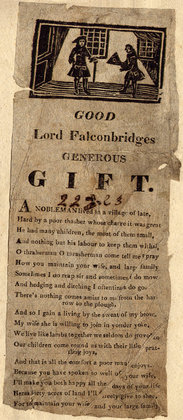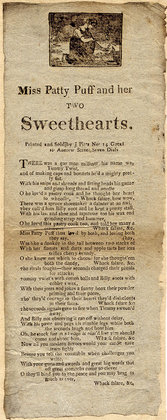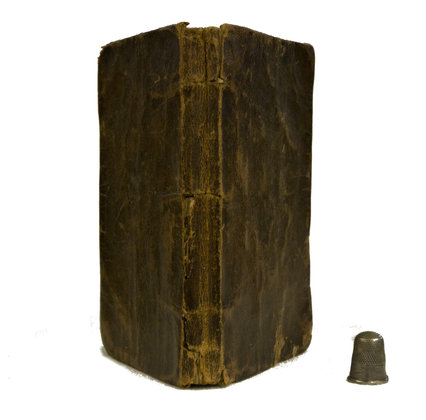Welcome to Popular Romanticism
Reader: you’ll find this little site contains
Enough to answer thy expense and pains;
Print artifacts enough there surely are
To please Romanticists near and far,
Novels, mags, and chaps you’ll often see,
But described to please the academy;
Of narratives the minstrel has his way
With enough to sing through night and day,
And if with caution you will read them through,
Twill both instruct and delight thee too.
Featured Narrative
J. Pitts, 7 Dials
Ballad-sheets are single sheets of paper with a ballad printed on one side – a cheap, ephemeral form of street literature to be sung. All ballads are essentially short narrative poems, but different from region to region, and within regions, according to lyrical elements and quality, relative to the conditions of production and reception, as well as the interests of publishers and readers. The anonymous ballad-sheets collected here were printed and sold by popular publisher John Pitts at Seven Dials, a notorious London slum in the nineteenth century. Stories of love, marriage and courtship, as well as adventure at sea, are common; some are drinking songs, others are comical and/or topical; all are anonymous but many were known to readers, through oral tradition or by way of other downmarket forms such as chapbooks; others demonstrate varied form and content for increasingly literate, urban readers. Read more>
Featured Narrative
Pilgrim's Progress
John Bunyan’s Pilgrim’s Progress from This World to That Which is to Come, Delivered Under the Similitude of a Dream (1678) was one of the most popular works of literature in the nineteenth century, likely second only to the Bible. Despite increased reading of novels and other forms of secular literature, this Christian allegory remained popular. In Britain, it was available upmarket and downmarket in a variety of forms. Illustrated editions, for example, could provide distinction, but also reach those who could not read or who read at a low level. It was awarded to Sunday school students, gifted to family and friends, and expensively bound by those who could afford it. Ships to the British colonies were heavy with copies of Pilgrim’s Progress; it was also translated into many languages, making its way beyond Britain, Europe and the New World to India, Africa and elsewhere. Read more>




